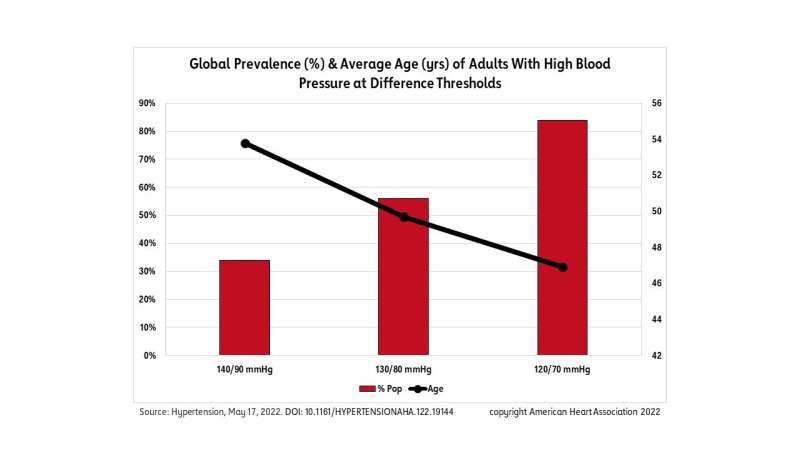
Changing the definition of high blood pressure universally would have a global impact on the prevalence of hypertension—particularly in lower income countries and in younger age groups—according to a study published today in the American Heart Association journal Hypertension. The study’s authors suggest substantial increases in health-care resources are required to tackle hypertension globally.
The infographic shows the increase in the proportion of people with hypertension when applying stricter BP thresholds was highest in low-income countries: 95.3% for ≥140/90 mmHg compared to ≥130/80, and 203.9% for ≥140/90 mmHg compared to ≥120/70. In contrast, the lowest increases with stricter thresholds were seen in high-income countries: 71.6% for ≥140/90 mmHg compared to ≥130/80, and 167.1% for ≥140/90 mmHg compared to ≥120/70.
The average age of people with hypertension would be 46.9 years with a threshold of ≥120/70 mmHg; 49.7 years at ≥130/80 mmHg, and 53.8 years at ≥140/90 mmHg.
American Heart Association

